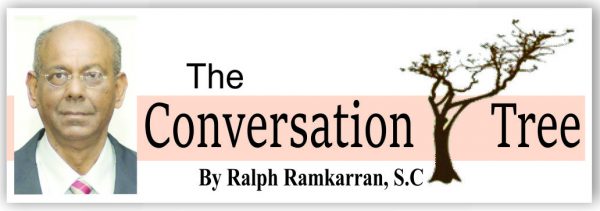 Political lifespan in the third world, unlike the developed world, accords generally with a person’s physical lifespan, if no intervening political, health or other event intervenes to terminate the political career. Most politicians hardly ever contemplate the tenuous nature of a political life. Once office is obtained, many believe that they are fixed for life. When the office is terminated by natural political causes, convulsive anger is displayed. We saw it in Guyana recently.
Political lifespan in the third world, unlike the developed world, accords generally with a person’s physical lifespan, if no intervening political, health or other event intervenes to terminate the political career. Most politicians hardly ever contemplate the tenuous nature of a political life. Once office is obtained, many believe that they are fixed for life. When the office is terminated by natural political causes, convulsive anger is displayed. We saw it in Guyana recently.
When Burnham passed at the age of 62 in 1985, he was already head of government for 21 years. The political rhetoric from fans before 1985 about his great intellectual and political genius suggested that he would remain in that position until he passed of natural causes in old age. Feeling robbed of his human and physical presence, by then glowing with a halo of mystique, his supporters tried to embalm his earthly remains so that they might gaze upon it and continue to be inspired. But the body could only be half embalmed as it took too long to reach Moscow. Only a sarcophagus, adorned with his visage in stone, remains to inspire. Recent efforts to summon his ideas from the afterlife appears not to have been successful.
When Cheddi Jagan passed in 1997, at 79, as he was preparing to run for a second five-year term, he had no identifiable successor. He did not expect to die in office and no doubt believed that he would have had the opportunity to anoint his successor. He did, in a kind of a way, by leaving a typed letter, signed in a strong and firm hand while he was in hospital in 1997, declaring that he would like Mrs. Jagan to succeed him. The PPP chose, not Seven Ponds, but a shrine at Babu John in Corentyne, where pictorial images inspire the faithful once a year. Thankfully, in a moment of inspiration, both parties supported a two-term presidential limit.
For decades, we had the Birds (father, then son) of Antigua, John Compton of St. Lucia, Eric Williams of Trinidad and Tobago, Alexander Bustamante and Norman Manley of Jamaica, Grantley Adams and Errol Barrow of Barbados and many others. Kamla Persaud-Bissessar of Trinidad and Tobago is now poised for political longevity as opposition leader and possibly a future prime minister when she would be in her 70s. Ralph Gonsalves, of St. Vincent, and Keith Mitchell, of Grenada, are still going strong. Many leaders in Asia and Africa never give up.
Contrast these political careers with David Cameron, David Milliband and George Osborne in the UK. Cameron and Osborne retired in their early 50s after the government lost the referendum on continuing membership of the European Union. Milliband was in his 40s when Labour lost the elections and he resigned from the leadership of the Labour Party. When Angela Merkel of Germany retires soon, she will be doing so at the height of her popularity and still in her 60s. Jeremy Corbin came late to leadership. But in his first elections he brought down the Conservatives to a minority. But as soon as he lost the next elections he resigned.
When the PPP was reduced to a minority government in 2011, to the great shock of its supporters because it expected to remain in office in perpetuity, there was no sign that it had learnt any lesson at all. Its electoral and leadership strategies were the same in 2015 as they were in 2011. It followed the same pattern in 2020 but the APNU-AFC’s closure of the sugar estates and its poor performance created an opening for the PPP. In 2020, the leadership that came down from the 1970s, with a few additions, were still wielding substantial influence. But after the elections, high political office was no longer on offer. Many remain active politicians, albeit with waning political influence. Hopefully the PPP/C has warned its new governmental appointees that employment can only be guaranteed for five years, although Vice President and General Secretary Bharrat Jagdeo is expected to remain at the helm of the PPP for decades to come, influencing the next two choices for presidential candidates.
In the meantime, APNU is in all sorts of crises following its loss of office. The choice of Joe Harmon as Opposition Leader by its leader, David Granger, who has chosen not to take up a seat in Parliament, has created convulsions. The breaking of its promise to the AFC to support the latter for Deputy Chair for Regions 4 and 10, has created a crisis in their relations. The PNC did the same to the PPP over the mayoral spot in Georgetown and Region 7 (or was it 8?) in years past. The PPP has learnt not to tie electoral bundle with the PNC. The AFC is still caught in APNU’s web. The AFC would do well to remember the demise of the UF (United Force) after it linked up with the PNC. That identical fate awaits the AFC. In the meantime, APNU’s leadership issue is far from settled. As white smoke announces the election of a Pope, maybe a gunshot will announce the election of APNU’s leader.
